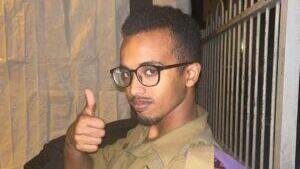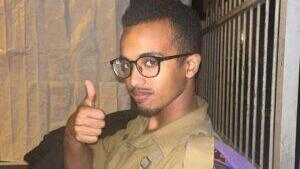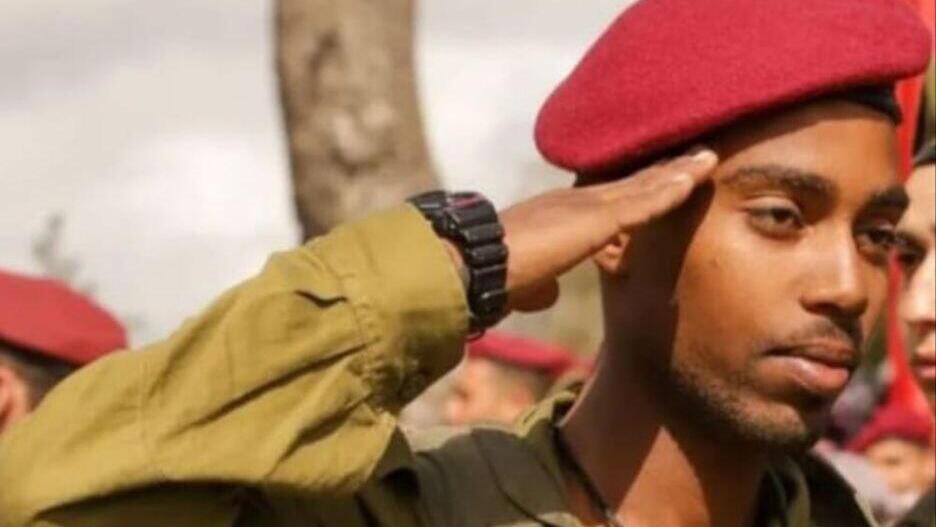“He looked to do serious army service,” Goshen added. “He wanted to give back to Israel.”
“We miss him so much,” his father said. “We are just trying to build our lives without him. A lot is missing.”
Oriya is one of a growing number of Ethiopian Israeli soldiers who have died fighting since the Hamas massacre on Oct. 7.
An opinion piece published in The Jerusalem Post highlighted that roughly 90% of Israeli men of Ethiopian descent enlist in the IDF, and about half of them serve in combat roles. Among women, the enlistment rate is around 70% — both figures are significantly higher than the national average.
“The young people in our community choose to be in combat,” Goshen said. “We respect the young people who choose to fight for the country.”
This sense of duty is deeply rooted in Ethiopian culture, explained Shmuel Legesse, an international educator and community activist of Ethiopian descent.
“According to our culture, it is heroic to join the army and die for your country,” Legesse said.
He explained a concept called Fano— the idea that if someone attacks your wife, parents, home or land, you must avenge them. That spirit, he said, lives on in stories like that of Lt. Avichail Reuven, who famously ran eight miles from his home in Kiryat Malachi to the Gaza border on Oct. 7. Reuven wasn’t yet called up and didn’t have a car, but carried his rifle and joined the fight. He was later honored by Prime Minister Benjamin Netanyahu in Washington, D.C., before a joint session of Congress.
But Legesse also believes the contributions and sacrifices of Ethiopian Israeli soldiers are too often overlooked.
“When we fall in battle, the world remains silent,” he said, expressing frustration that his community is still depreciated. “I don’t feel like enough has been done to recognize our community’s contribution. It is not identified, counted, or given enough attention by the media or the government. The individuals who lost their loved ones are not supported or assisted enough.”
Goshen said that while he feels his own family is receiving support, he knows many others who are not, often due to language barriers or a lack of knowledge about available resources. He urged the government to provide more support in Amharic for families of fallen soldiers.
Legesse described another Ethiopian cultural concept, ederh, a form of mutual aid in which community members collect food, money or other necessities for those who are bereaved. He said this kind of support has been widespread within the Ethiopian community in Israel since the war began.
Even in grief, Goshen said he tries to visit the families of other fallen soldiers, from all backgrounds.
“There are so many who have lost sons and daughters, and I feel like I have to take part in the pain of those families,” he said. “These are not just the sons of so-and-so. These are everyone’s sons.”
Yehonatan Yitzhak Semo is another Ethiopian Israeli soldier who made the ultimate sacrifice. He was 21 when he died on Nov. 8, 2023, during Israel’s first ground operation in Gaza. Semo served in the Paratroopers Brigade.
His mother, Ayelet Semo, described her son as smart, curious, and full of friends. While proud of his Ethiopian heritage, she hopes that he will be remembered simply as an Israeli soldier who gave his life for his country.
She also hopes the nation will take note of the diversity of those fighting — and dying — for Israel.
“We need to be unified,” she said. “This is the thing that hurts the most. All of these young soldiers are fighting in Gaza. Our nation needs to support them, and we need to connect and live here in peace, as well.”






